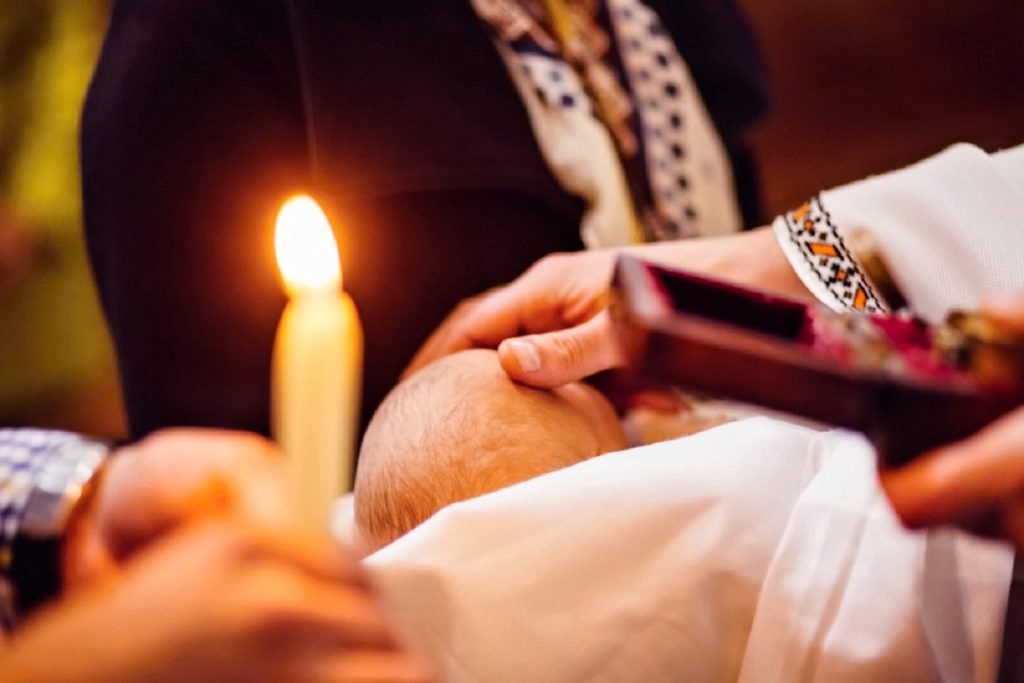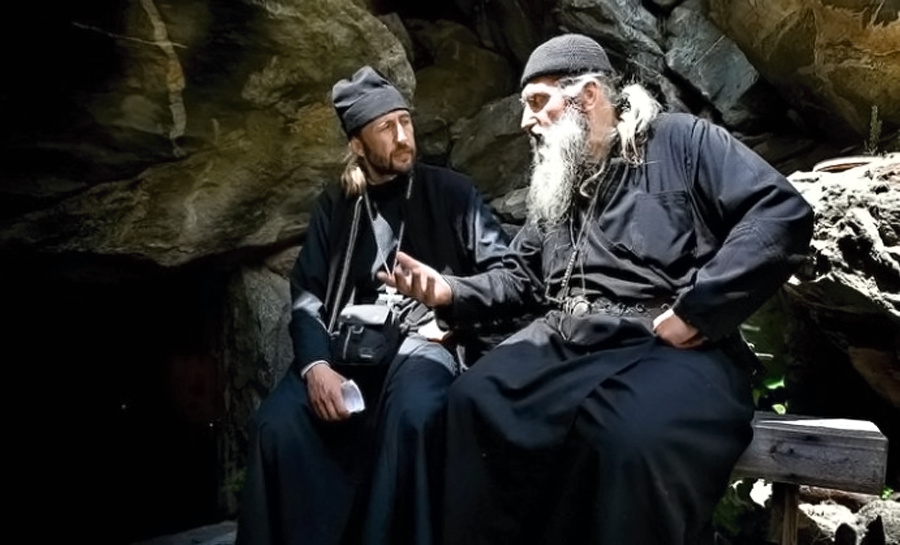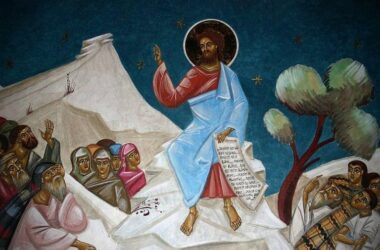Nobody saves his soul without Christ ! But answer: what significance has this for God, Who crucified Himself for us and seeks the lost sheep, saying so calmly: I don’t want to hear about unbaptized children and pagans. I don’t care about them, about their suffering. I don’t let them come to Me nor that one who lives in the jungles of the Amazon and didn’t know Me and My path even if he had a good conscience like Melhchisedec. Do I give joy and love to those who knew me clearly and served me sacrificingly, fulfilling My commands? Such a severe Christianity are you preaching? Then I do not understand anything from the love for mankind.
I begin with a small protest: you should not put in the mouth of the divine love, not even jokingly the words: `I do not care about their pains.` The arrow is poiting towards me but in fact you offend Christ. What it is habitual for a journalist is not normal for a man who wants to solve a serious theological problem. I try to answer to you. Saint Gregory the Theologian in the preaches from the Epiphany speaks about the fact that the pagans and the unbaptized babies will not be punished or glorified.
Apostle Paul writes about the pagans who knew Christ that they will be judged according to the law of their conscience; they will not be defended, but judged this meaning that they will be prepared a place depending on their deeds. It is nto possible to receive the grace of God after death, when the human personality is destroyed as a spiritual-physical unity and it remains only a part of it, the soul crushed by the original sin and the personal sins, unpurified by baptism. God’s love does not save the unilateral man, it must be perceived through the love with which the man answers. But the relationship with God is an interaction between the divine and the human will. The grace seeks the soul thirsty after him and who obeys him. In the earthly life the man grows as a moral-spiritual person. In an opposite case, this life would be absurd. You are puzzled why the divine love does not save the whole world. I think that the question `why God does not give salvation to the pagans?` is incorrectly asked. God gives what the man can receive. More than this, God wants the salvation of the man more than he does himself. But God gave moral autonomy to the man and He cannot save him without his participation. Otherwise the man would be deprived of his free will, meaning that he would be destroyed and turned into a biological robot.
We are puzzled why God left a part of mankind in ignorance about Christianity. Christianity was spread but rejected and in certain regions destroyed through fire and sword.
If on the shores of the Amazon or in the middle of Africa were at least one man capable to adopt Christianity and fulfill the command of the Gospel, then the Lord would send there preachers or would find a modality to bring them to Christianity. But the situation is more tragical when the man passes by Christ and he closes his eyes intentionally. In my childhood I read a story with a similar content. A Jew who lived in Jerusalem got a toothache all of a sudden. Any solution he tried was of no use. The pain did not stop. But then the Jew heard noise in the street and he looked on the window: Christ was taken to crucifixion. But the Jew was not interested at all in anything about Messiah or the crime that was about to be committed. He was worried only about his sick teeth. Then he remembered that Christ made miracles and he asked to be healed by him. His toothache stopped but the Jew forgot about Christ immediately and he began his usual chores. He did not need Christ anymore. How many Christians cannot see themselves in this Jew if they look with sincerity in their hearts? Now many speak about the divine love but do they need it? Did they seek this love, were they tormented by its crucial problems about the meaning of life, were they captivated by the face of Christ, by its beauty? No. Many understand God’s love as a solidarity He has with the sinner, they understand His love as an opportunity to sin and be with Him in the same time. More exactly as an opportunity of not being with God but of using His gifts.
The men don’t think about what means salvation in its Christian significance. For some salvation means only a wonderful place in a space where the man will leave after death. But salvation mean resemblance with God, the gaining of the divine grace which begins on earth and is continued in eternity, is the face of Christ which enlightens everything brighter and clearer in the soul of the man, is the ascent from darkness to light, is the transfiguration of the human nature, which becomes more spiritual and capable to embrace the divine perfection. For the Christian, salvation mean Christ Himself. It is not possible a salvation like this without expiation, without the sacrifice from Golgotha and without sanctification through the Holy Spirit. But doesn’t this mean that all those who don’t know Christ will go in the torments of the hell, regardless to their deeds? No! The hell and the bottomless pit don’t mean the same thing. Although you invented the pagan from the Amazon who is more righteous than Melchisedec, to the pagan who in the limits of his tribal habits and conceptions proves compassion and kindness, according to the inner voice of the conscience every man has, although on different levels, will be given a life after death according to his deeds, not in the glory but nor in labors. Salvation is given by the blood of Christ, the punishment is given by the personal sins, but the virtuous man who does not know God will not be deprived of His mercy. They say that for the good deeds God will reward those who don’t know Him but He cannot give Himself. In the Middle Age sometimes hell was symbolically represented in the form of some concentrical circles: the center, where were Satan and the worst sinners was called Tartarus, in the surroundings were the kinder sinners and the unbaptized babies. There were no torments nor any bliss. In what regards the torment of the sinners and of the evildoers they are tormented in the proper meaning of this word, not by God but by their sin, which represents a destructive power on earth and a false kind of living and after death a permanent resemblance with the demon. But before being concerned about the pagans from the shores of the Amazon let us look at ourselves. God reveals His love to us, the Christians, but do we receive it, did we settle as aim of our life to gain grace, do we sacrifice anything for the divine love about which we enjoy to speak? Maybe at the Last Judgment those who don’t know God will denounce for their inner apostasy the minimalist Christians who lost the gift they were given. The soul which loves the sin longs after that one who tempts him wih false hopes. From this reason there appeared heresies about the salvation of the entire mankind in the old times as well as nowadays among these being an apocryphal writing about the baptism in hell.
Archimandrite Rafail Karelin – Answers at the dilemmas of nowadays






